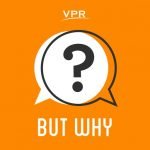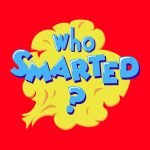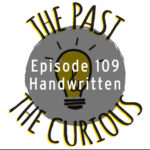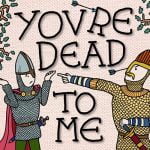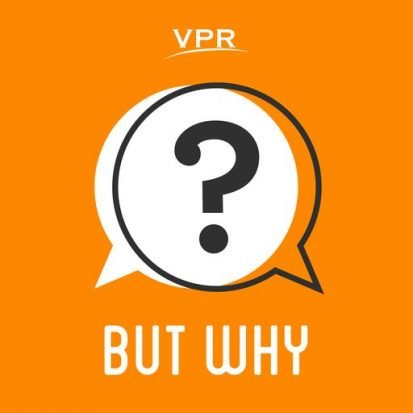
How Are Words Added To The Dictionary?
Leave a reviewOur guest this week is a lexicographer. That’s someone who studies words and, in this case, edits dictionaries. Emily Brewster is a senior editor at Merriam-Webster and host of the podcast Word Matters.
© Vermont Public Radio | 21:07
|Episode: 154 |
Full episode description
 Episode One: But Why: Intro For Adults
Episode One: But Why: Intro For Adults
This is an Episodic show. You can listen to it in any order, but episode one is always a great place to start.Full Episode description
Our guest this week is a lexicographer. That’s someone who studies words and, in this case, edits dictionaries. Emily Brewster is a senior editor at Merriam-Webster and host of the podcast Word Matters.
Emily answers a question from 8-year-old Emma in Kentucky, who wants to know how words are added to the dictionary. But before we can answer that, we’ll tackle 7-year-old Julia’s question, “How are new words created?” Join us for an episode about how words are created, when they’ve reached a critical level of use to get their own dictionary entry, and when words are removed from the dictionary. Get ready for some word nerdery!
Download our learning guides: PDF | Google Slide | Transcript
More Word Episodes:
But Why Live: Words and Language
“How do words get added to the dictionary?” – Emma, 8, Kentucky
Lexicographers like Emily Brewster read and listen a lot and pay attention to the new words that people are using. They collect these examples and determine how many instances there are of the word and what different kinds of sources are using the word.
“If all the examples are only appearing on TikTok, then that tells us one thing about the word. But as soon as they’re also appearing in, you know, a magazine that you would see at the dentist’s office, then that tells us something else about the word’s status,” Emily explains. “So we are always looking for information, for evidence, of how words are being used by the people who speak the English language. And when we have enough evidence that the word is really part of the language, that it’s a word that most people already will recognize when they hear it, that’s when we know that it’s ready to be added to the dictionary.”
For example, the word COVID-19 was a word created by the World Health Organization about a year and a half ago. “It got into our dictionary faster than any other word in the history of the dictionary has ever been added. Because what we knew immediately was that this word was not going away, that everybody was talking about this word,” Emily says.
Sometimes dictionary editors update the definition of words that were already included. For example, the definitions of “pod” and “bubble” were updated this past January to include a new meaning: people you might have grouped up with when you weren’t seeing other people because of the pandemic.
Other new words recently added to the dictionary include: “makerspace,” where people get together in a common area and often share tools to make their own projects; “BIPOC,” an abbreviation for Black, Indigenous and People of Color; and “second gentleman,” in reference to Vice President Kamala Harris’s husband.
Once it’s been established that a word is in widespread use, an editor will carefully read through evidence of the word in use and formulate a meaning in very careful language. Another editor will determine how old a word is and its earliest usage, another will look at the word’s history, and the word will get a pronunciation. Then it’s ready to be added to the dictionary.
Merriam-Webster updates their online dictionary with new words or new definitions of words a few times a year. Emily says words don’t usually get taken out of dictionaries, but editors do make choices about which words appear in print dictionaries.
Support But Why | Newsletter Sign-Up
© Vermont Public Radiobop| Status: Active, 264 episodes | Kind: Episodic | Episode URL
The content, Artwork and advertising within this podcast is not owned or affiliated with Sound Carrot and remain the property of their respective owners.
